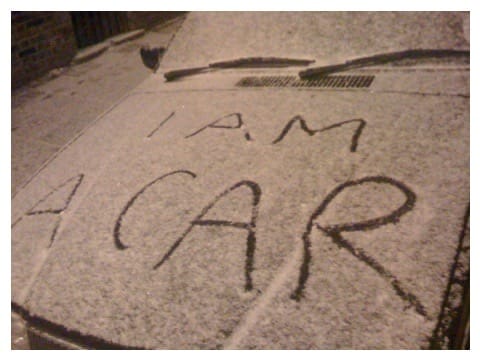We Are the Weather: imperfection can save the world
There are things we all know we should do, but continue to resist because they seem too hard. But the real limiting factor is changing…
There are things we all know we should do, but continue to resist because they seem too hard. But the real limiting factor is changing your perspective to accept that perfection is not required.
Instead, it’s more about pushing yourself away from your worst possible iteration.
This was the lesson I learned most recently from We Are the Weather, a punchy and accessible summary of how anyone can make a difference to global warming through simple everyday changes.
What this means for me is identifying a few areas where I’ve been thoughtlessly generating a negative impact, without truly gaining a ton of value and enjoyment in return.
Tea
In lockdown, we’re making cups of tea all the time as a nice comforting treat. And each time, obviously there’s a splash of milk. So we’re buying more milk.
Now here’s the thing: it’s just a habit. I’m not drinking tea because I tried all the available options and decided this is something I can’t live without. I’m drinking tea because we’re British and that’s what we do.
If there’s a huge negative consequences to using milk (say, for example, the end of the world), then I know I can live with less of it. But, even better — there are dozens of alternatives that don’t need milk.
It felt strange at first, but habits change quickly if you keep at them and your associations easily switch to the new.
There are various areas of my life where just thinking twice about this has encouraged me to find alternatives that are just as good. And because of that reduction, I don’t feel so much guilt about the areas where I just don’t want to compromise yet.
Cheese
The best example there is cheese. Previously, I was buying slabs of cheap cheddar and lazily resorting to cheese sandwiches for lunch because it’s in teh fridge. Now I feel like I have a mandate to buy better, rarer cheese and really focus on enjoying it specifically. Not just as thoughtless sandwich filler.
And another good outcome is that the variety and quality of our lunches goes up.
Then there’s the elephant in the room: meat itself.
I’m trying to buy meat from only the very best sources: Knepp farm is a particularly highlight where the animals roam totally free. It’s more expensive, but because we buy so little, I think it evens out.
And y’know what, the less of it you eat, the more apparent it becomes how necrotic and bizarre meat is compared to vegetables. I’m using it more and more like an ensemble ingredient than a pure focus e.g. vary ragu and veg layers in lasagne.
Pushing the floor away
The crux of the matter is: if we are aware of looming catastrophe and already know how to solve it, we can’t indulge the suspicion that it would take perfection to make a difference and give up.
If we can all just find those areas of easy compromise and push ourselves away from the worst version of our impact, that would be enough.
It starts with just asking a simple question at each crossroads, instead of slipping into habit. And these small questions can absolutely save the world.
Go buy the book now to learn more.

